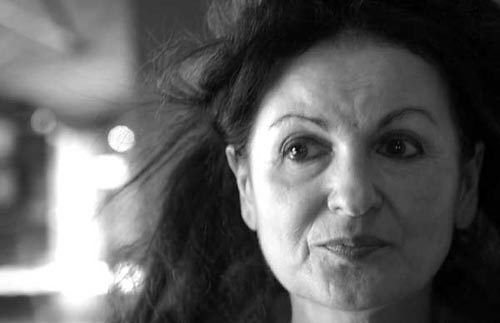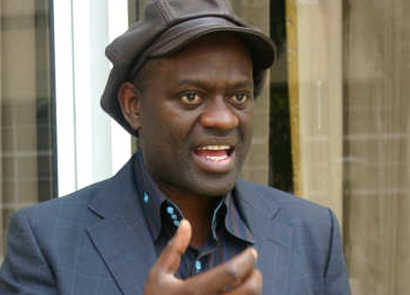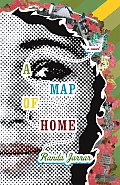Category: book reviews / recommendations

In The Locust and the Bird, the Lebanese novelist Hanan al-Shaykh tells her mother’s life story, in her mother’s voice. Kamila, Hanan’s mother, is born to a destitute family in southern Lebanon in the late 1920s. They move to Beirut to live with an older half-sister, Manifa, though they are expected to earn their keep by selling wares door-to-door. In Beirut, Kamila discovers the world of music, fashion, and Egyptian movies. She also meets the love of her life, a cultivated man named Mohammed. When Manifa dies unexpectedly, the illiterate Kamila is married off, at the age of thirteen, to Manifa’s widower. They have two children (one of whom is the novelist) before Kamila manages to be reunited with Mohammed, whom she marries and to whom she bears several children.
Translated by Roger Allen, The Locust and the Bird is in some ways a tragic story, but it’s also an inspiring story, in which a woman manages to survive by her wits alone. Kamila is constantly trying to figure out ways to outsmart the men in her family. This is because, she tells us, “most of my friends were scared of every man in their family — even distant relatives — and this included the rich and the grand, like my glamorous cousin Mira.” Although Kamila’s struggles are occasionally rendered with minimal empathy and psychological depth, the story is engrossing. Reading this book, one comes to understand why Al-Shaykh has written so many novels with feisty heroines fighting back against male domination.
Photo credit: Al Ahram.

I have an essay in The National about the work of the Djiboutian writer Abdourahman Waberi, whose most recent novel is In The United States of Africa.
Most African fiction to which English-language readers are exposed seems to be exclusively concerned with the question of “what is?” The plight of child soldiers, the Aids pandemic, life under apartheid, the clash between traditions and modernity – these subjects make up the bulk of what English-language publishers translate. One plausible explanation for this is that too many British and American publishers view African literature through the prism of ethnology. And since their primary understanding of Africa comes from headlines about the continent’s troubles, it makes sense that novels exploring these subjects would attract their attention. Perhaps this is why writers such as the Congolese Wilfried N’Sondé or the Moroccan Fouad Laroui, whose work often addresses broad themes of love, friendship and betrayal, have never been translated into English.
Fortunately, the University of Nebraska Press has broken with this trend. It recently published In The United States of Africa, by the Djiboutian writer Abdourahman Waberi, a novel that seems entirely concerned with the question of “what if?” What if Africa were the world’s locus of power? What if Europe and America were the third world? How would one perceive, think and speak about each continent? Which races and ethnicities would be described with specific and nuanced expressions – and which with vague and essentialist phrases?
You can read the full essay here.
(Photo credit:daad.de)
My review of Jonathan Littell’s The Kindly Ones appeared this weekend in the Los Angeles Times. Here’s the opening paragraph:
Literature has given us many unsympathetic protagonists yet relatively few genuine monsters: “Lolita’s” Humbert Humbert, Shakespeare’s Richard III and “American Psycho’s” Patrick Bateman come to mind. In each case, the writer was successful because the reader was drawn into the narrative by the beauty of the language, a masterful use of point of view, or an intriguing personal life against which the monstrosity of the main character could be highlighted. In “The Kindly Ones,” the Prix Goncourt-winning novel that has created a cultural sensation in France and is now being published in the United States, Jonathan Littell has done none of this, with the result that his novel reads like a pornographic catalog of horrors.
You can read the entire piece online here.
I have a small piece on the Sudanese writer Tayeb Salih in this week’s issue of Time Magazine. Here is the opening paragraph:
When I was in college, a friend of mine pressed with great urgency a copy of a slim little novel into my hands, as if he were aware it would satiate a hunger I didn’t know I had. That book was Season of Migration to the North, by the Sudanese writer Tayeb Salih, who passed away in London on Feb. 18 at 80. I had been writing for some time by then, but Salih’s perceptive assessment of the relationship between East and West, his complex weaving of personal and political lives, and the beauty of his prose redefined fiction for me.
For those who are interested in the introduction I wrote for Salih’s Season of Migration to the North, an abridged version of the essay appears in this weekend’s National.

My review of Alain Mabanckou’s Broken Glass and African Psycho appears this weekend in The National. Here is the opening paragraph:
In Africa, when an old person dies, a library burns. When the Malian writer and ethnologist Amadou Hampâté Bâ uttered these words at a Unesco assembly in 1960, he was attempting to draw attention to Africa’s tradition of oral storytelling. Little did he know that his aphorism would turn into one of the most persistent clichés about the continent, one that unfortunately reinforced the erroneous idea that there was no tradition of written literature in Africa prior to European colonialism. Early on in Alain Mabanckou’s new novel Broken Glass (to be published this month in translation from French to English), the proprietor of a seedy bar in Brazzaville, who is referred to only as Stubborn Snail, hears the slogan and derisively responds that it “depends which old person, don’t talk crap, I only trust what’s written down.”
In fact, Stubborn Snail is so sure of the power of the written word that he gives a notebook to his most regular customer, an old schoolteacher nicknamed Broken Glass, and asks him to write his customers’ stories. Broken Glass takes up the challenge, though he quickly warns the reader that “I’m writing this for myself as well, that’s why I wouldn’t want to be in his shoes when he reads these pages, I don’t intend to spare him or anyone else.” One suspects that Mabanckou shares these feelings, that he has no time for pious and well-meaning clichés about Africa, and that he intends to write as irreverently and as freely as he pleases.
You can read the entire piece here.
 I was so overloaded with work last fall that I didn’t have time at all for any pleasure reading, which is why I came so late to my friend Randa Jarrar‘s debut novel, A Map of Home. This is a traditional bildungsroman, but one in which the hero is actually a Greek-Palestinian-Egyptian heroine named Nidali, who grows up in Kuwait and Texas, who puts in a strong argument for why the Egyptian crooner Abdel Halim must have been gay, and whose attempts at college entrance essays include one titled “I Come From Crazy Stubborn, Mad Lovin’ Hoes.” I read the book in one sitting. Jarrar writes with honesty and humor about what it’s like to be a Palestinian girl in Kuwait, or an Arab in Texas. Here’s a small excerpt from the middle of the book, when Nidali’s father decides he will write his memoir:
I was so overloaded with work last fall that I didn’t have time at all for any pleasure reading, which is why I came so late to my friend Randa Jarrar‘s debut novel, A Map of Home. This is a traditional bildungsroman, but one in which the hero is actually a Greek-Palestinian-Egyptian heroine named Nidali, who grows up in Kuwait and Texas, who puts in a strong argument for why the Egyptian crooner Abdel Halim must have been gay, and whose attempts at college entrance essays include one titled “I Come From Crazy Stubborn, Mad Lovin’ Hoes.” I read the book in one sitting. Jarrar writes with honesty and humor about what it’s like to be a Palestinian girl in Kuwait, or an Arab in Texas. Here’s a small excerpt from the middle of the book, when Nidali’s father decides he will write his memoir:
Your father was the #1 student in all of Jenin!” Baba said proudly one afternoon after supper. “I blew fear into the other boys’ hearts. No one surpassed me. I rode the donkey down to school every morning and sat in the classroom–which was freezing in wintertime since some of the windows were broken–and I always had my hand up: I could answer any question. Without fail, my name appeared first on that list every year.”
I wanted Baba to tell me more about this donkey, about growing up in Palestine on the small hill in the small house, spreading mats for beds on the floor of the one-room house. “I’d rather hear your stories than study any book,” I said, and, unfortunately for me, he took this announcement literally.
“Then bring me a piece of paper!” he commanded. “And bring me a pen!” he said, so I did, and then he said, “Sit! Now write: Ever…wait.” He stared off into the window, or at the branches in the fake forest we painted on the wall. “Evergreen,” he said, “write it,” so I did. Then he said, “Now write, A Memoir, Waheed Ammar,” so I wrote, A Memoir, Waheed Ammar. Then he stared off again and anxiously bit the inside of his cheeks, his mouth twisted to the side and his lips pouting.
“There…No! Don’t write that. Wait! The hills in 1901…No! Did you write that? Don’t write it. Wait till I say full stop. Wait! Fuck, you’re ruining my inspiration. Kids! You can’t be an artist and have kids! Now sit, don’t stand there leaning that paper against the couch, didn’t you hear? I said a memoir. So sit.”
You can find out more about the book here.



